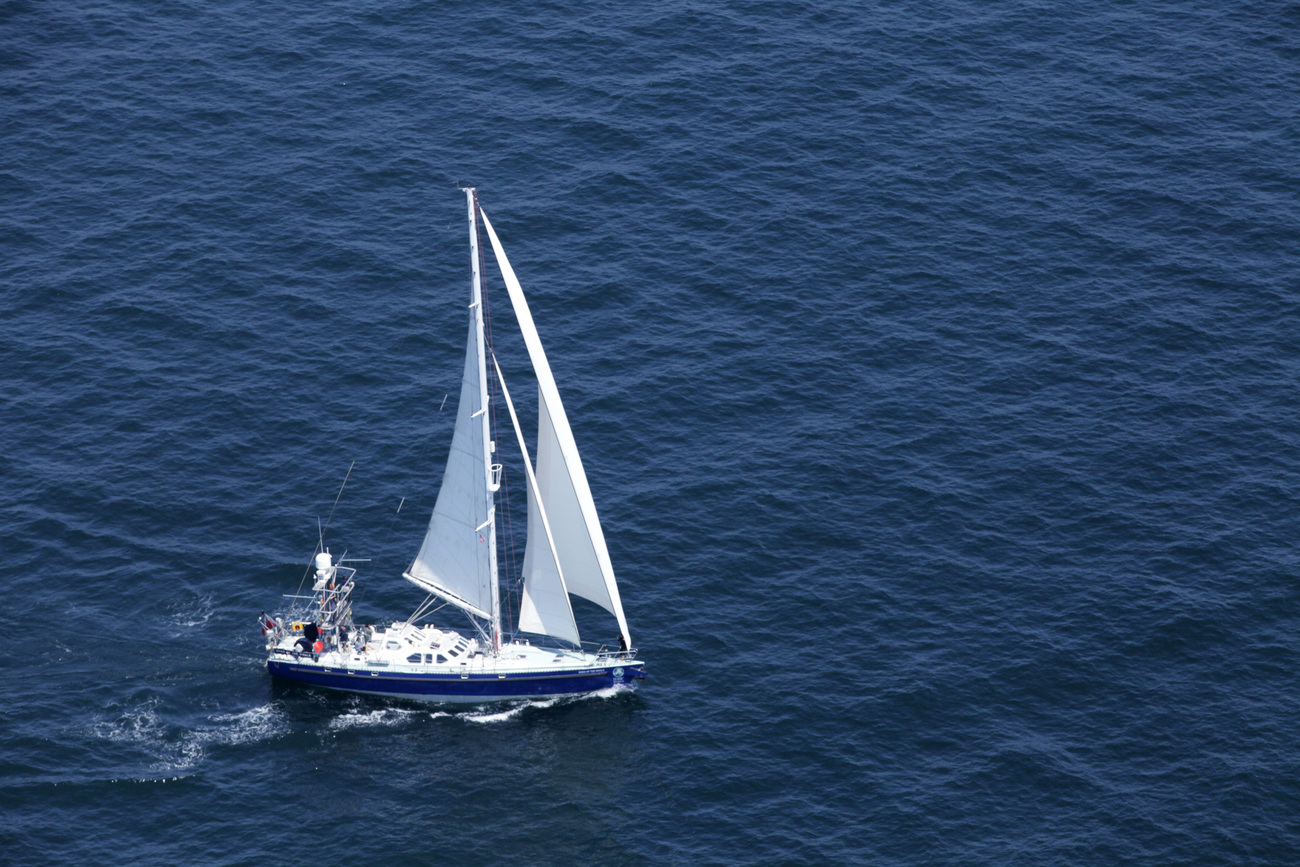Saving the North Atlantic right whale - North America
Don't fail our whalevital research to help save the Critically Endangered North Atlantic right whale begins soon
vital research to help save the Critically Endangered North Atlantic right whale begins soon

(Washington, DC – 14 December 2022) A unique research vessel, aptly named ‘Song of the Whale’, will help address data gaps fundamental to the survival of the North Atlantic right whale, (Eubalaena glacialis). IFAW commissioned the vessel to provide an offshore platform to enhance monitoring and research efforts for this critically endangered whale species on the brink of extinction in North American waters.
In 2017, the National Oceanic and Atmospheric Administration (NOAA) declared an Unusual Mortality Event (UME) for the species, following an alarming, elevated number of mortalities. The official population estimate of 340 individuals, released recently by the North Atlantic Right Whale Consortium, underscores the continued vulnerability, poor health, and diminished reproductive success of the species. Human-induced threats have all but decimated a population that once numbered in the tens of thousands at the turn of the century. A separate recent study also suggests that just 72 reproductive females remain, a demographic that is essential to the recovery of this dwindling population.
“It is estimated that there are now fewer than 350 North Atlantic right whales remaining worldwide, so every opportunity to shine a light on how to effectively conserve them must be seized. This research will help fill critical gaps in our knowledge of the species - taking us from calving grounds in the south to feeding grounds in the north,” said Kathleen Collins, Marine Campaigns Manager for IFAW.
The survey team will follow the migratory path of right whale mother-calf pairs up the eastern coast of the United States, from Georgia in the south to Canadian waters in the north. This will mean collaborating with local right whale researchers, providing round-the-clock surveying capacity, even in challenging sea conditions. The research team on board is set to gather data on whale presence, call rates, distribution, overall health, habitat use and chronic threats, including underwater noise, vessel strike and entanglement risk.
“The Song of the Whale is purpose-designed for whale science and is one of the quietest marine research vessels in the world, operating with minimal disturbance to marine life. Passive acoustic monitoring will help detect whales in data-deficient areas in the hope of offering further information about where they are most at risk and what protection measures are most needed,” Collins added.
With the calving season taking place from mid-November through mid-April, focal areas for surveying will be the southeastern US calving grounds, followed by the Mid-Atlantic migration corridor off North and South Carolina towards the waters of southern New England. Song of the Whale will make its way to Tybee Island, Georgia, before ultimately heading up the coast, via key winter foraging areas south of Cape Cod and the Islands, to Massachusetts. There, IFAW and the research team will be working with the Stellwagen Bank National Marine Sanctuary team to continue research on di-methyl sulfide (DMS), a gas emitted by right whale prey. The aim is to identify potential links between DMS and aggregations of right whales which could help facilitate the creation of a predictive tool allowing management measures to be implemented prior to the arrival of right whales in a given area.
“The latest right whale population numbers confirm that current measures to save the species are falling short,” Collins continues. “It is our hope that additional data and information collected by Song of the Whale can contribute significantly to well-targeted risk mitigation measures and help to pull this species back from the brink of extinction once and for all.”
Song of the Whale will make additional port stops in key areas including Savannah, GA, and Washington, DC, where advocacy and awareness events will be held. The research vessel will sail until at least mid-2023.
Additional information on Song of the Whale can be found here.
ENDS
Editor’s Notes:
Interviews and media visits to Song of the Whale vessel will be available upon request.
Media assets are available via this link.
Press Contact:
Rodger Correa
US Communications Director
m: 202.834.6637
e: rcorrea@ifaw.org
Related content
Every problem has a solution, every solution needs support.
The problems we face are urgent, complicated, and resistant to change. Real solutions demand creativity, hard work, and involvement from people like you.